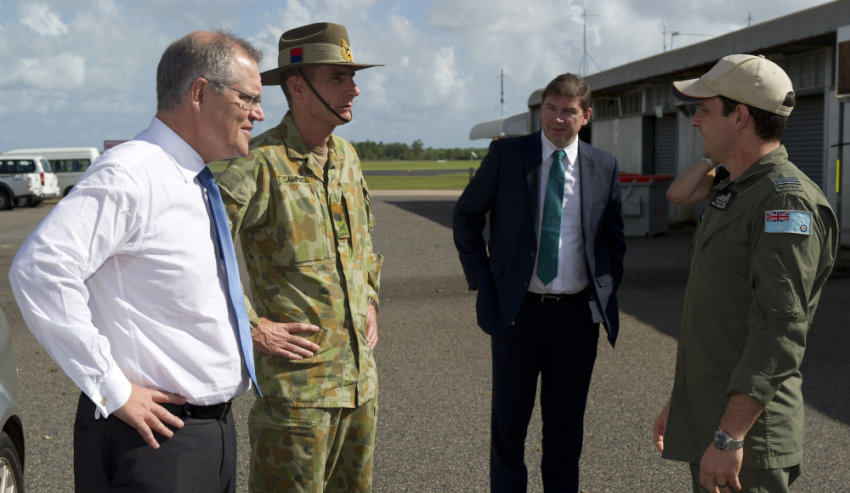Despite recent calls for the government to back away from its budgetary commitment of 2 per cent of gross domestic profit (GDP), Treasurer Scott Morrison has thrown his support behind the government's defence initiatives.
While speaking at a press conference in Sydney, the Treasurer talked up the government's recapitalisation of Australia's defence force and its strategy to increase job participation within defence industry through increased spending.
"Our commitment is being realised to defence. We are recapitalising our defence force at a rate not seen since the Second World War. We are restoring our defence forces in a way that has not been seen in generations," Morrison said.
However, the Treasurer would not be drawn on whether the government would consider senator Jim Molan's calls to lift the 2 per cent GDP spend on defence.
"We're already delivering on the 2 per cent commitment that I know Jim was a keen [proponent] of before we went into government in 2013, and I congratulate him on entering the Senate and look forward to his participation. As you know, Jim and I worked closely together on border protection when I was immigration minister. So I'm looking forward to Jim's contribution as a colleague joining the Senate as a New South Wales Liberal senator."
Earlier this year, Molan, a retired senior Army officer, said Australia had an expectation, not a right or guarantee, that the US would come to Australia's aid in extremis, but there seemed to be strong grounds to question that expectation and adjust defence policy, while remaining a staunch US ally.
"Until I deployed to Iraq with the US military in 2004-05, I made the common mistake of assuming US power was infinite," he wrote in The Australian newspaper.
"The US was indeed powerful after 1945 and even more powerful winning the Cold War."
But post-Cold War cutbacks meant that only three US Army brigades were considered fully combat ready and the US Navy has shrunk from 594 ships in 1987 to 278 today. Capability of the US Air Force had been assessed as "marginal trending to weak".
Senator Molan, a regular commentator in military matters who also advised former PM Tony Abbott on border protection, is one of a small number of MPs with recent top-level military experience.
He said the Australian Defence Force was now in the best shape it’s been since the Vietnam War.
“But still we need to defend our national interests independently. In particular, we need to address our critical vulnerabilities around fuel security and high-end weapons holding. Without doing so, we could be reduced to impotence in less than a week,” he wrote.
Molan said Australia was virtually alone among developed nations in not having a government-mandated strategic fuel reserve. It had been assessed that fuel supplies could be depleted within weeks through any disruption to sea deliveries, grounding the military.
The Bureau of Resource and Energy Economics estimated that industry stocks were 19 days of petrol, 17 days of aviation fuel and 12 days of diesel.
That problem was compounded by limited war stocks of missiles for the RAAF and Navy, which would be quickly exhausted in a conflict.
“What use is it to have the best strike fighter in the world [referring to the new F-35 Joint Strike Fighter] and the best ships in the world [under new naval program builds] if you don’t have a sufficient reload of missiles and you don’t have fuel for any of them,” he wrote.
Tune in to Jim Molan on the Defence Connect Podcast, where he offers future insights in the nature and future of warfare, the influence of the Defence White Paper and the nation’s capability.








